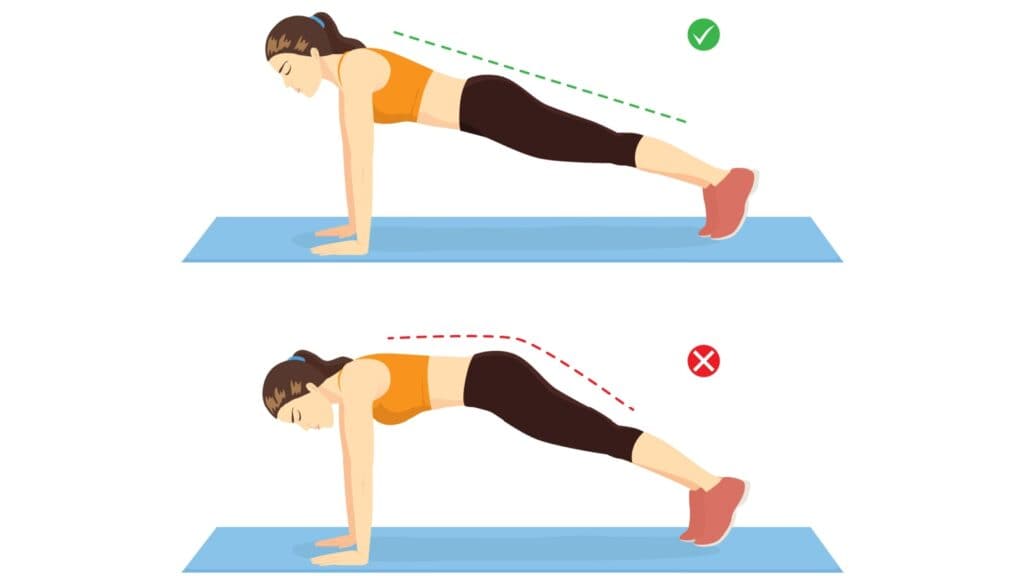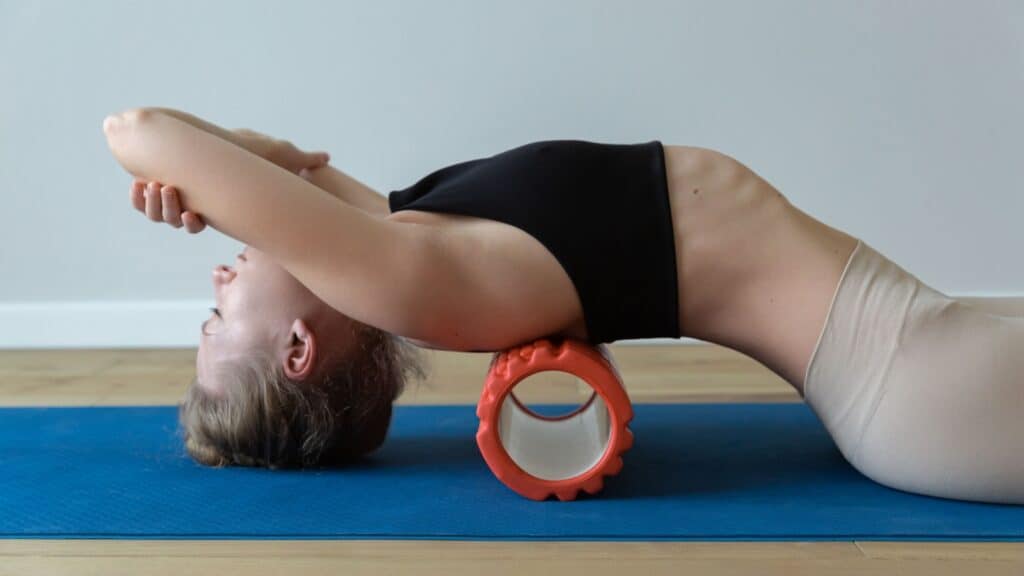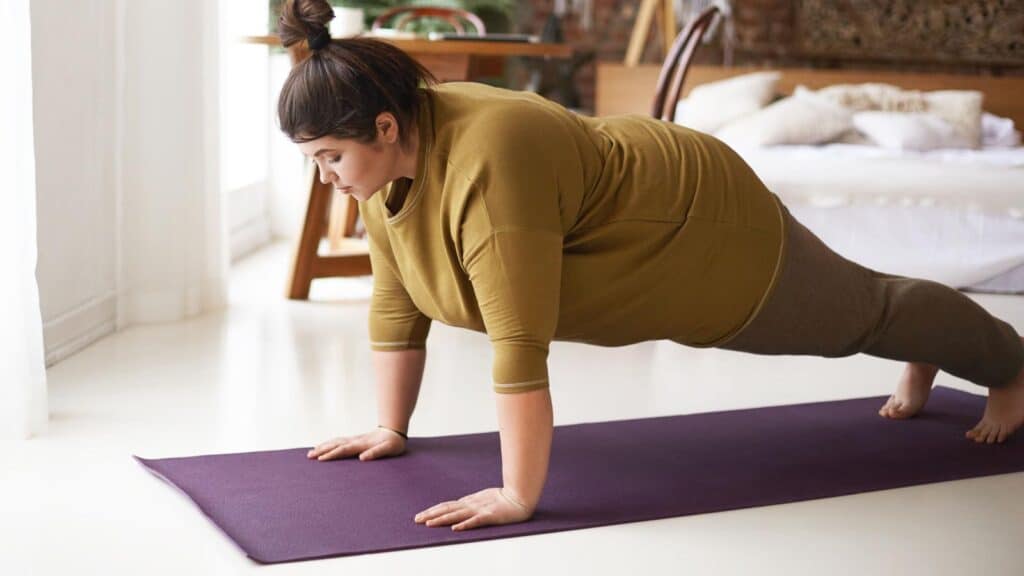Flatten Your Belly Fast: Planking Tips You Need to Know!
The plank is a fundamental exercise in fitness, celebrated for its straightforwardness and significant effect on core strength. To attain a flat belly, how long you hold the plank is crucial. Yet, it’s not merely about timing; proper form, regular practice, and an overall healthy lifestyle are essential for truly reshaping your midsection. let’s learn how to do plank correctly, for maximum impact.
Introduction to Planking

Planking is an isometric exercise that effectively targets the entire core, including the abdominals, back, and stabilizing muscles. Despite minimal movement, it requires maximum muscle engagement and is a gateway to a stronger, flatter belly.
Understanding Core Strength

The core comprises not just the abdominal muscles but also includes the lower back and hips. Strengthening this area is crucial for overall stability and health.
The Ideal Plank Duration

Plank duration should be tailored to individual fitness levels. Beginners might start with 10-30 second intervals, while more advanced individuals could aim for up to three minutes to boost core definition.
Quality Over Quantity

Longer planks aren’t always better. Proper form is key, including correct elbow alignment, a straight back, and level hips to avoid strain and maximize strength gains.
Incorporating Repetitions and Variations

Adding multiple sets of planks and variations like side planks and leg lifts can enhance endurance and prevent exercise plateaus.
Complementary Core Exercises

To achieve a well-rounded core workout, integrate other exercises like Russian twists and leg raises that complement the benefits of planking.
Nutrition’s Role in Core Strengthening

A diet rich in proteins, whole grains, and healthy fats supports the physical effort to flatten the belly by improving muscle definition and reducing fat.
Consistency and Lifestyle Factors

Regular exercise combined with good sleep, hydration, and stress management contribute significantly to belly fat reduction and overall well-being.
Tracking Your Progress

Setting measurable goals, such as gradually increasing plank times or improving form, helps maintain motivation and ensures continuous progress.
Common Planking Mistakes to Avoid

Avoid common errors like sagging hips or holding your breath, which can reduce the effectiveness of the exercise and increase injury risk.
The Science of Planking

Studies show that isometric exercises like planking can enhance muscle thickness and reduce waist size by boosting metabolism through sustained muscle engagement.
Setting Realistic Goals

Establish achievable, incremental objectives to keep enthusiasm high and make steady gains toward a stronger core.
Beyond the Basics: Advanced Techniques

For those who master basic planks, exploring more challenging variations can continue to enhance core strength and muscle tone.
The Importance of Rest and Recovery

Including rest days in your routine allows muscles to recover and grow stronger, crucial for long-term fitness and health. READ: These Tools And Resources Will Help You Maximize Exercise Recovery
Injury Prevention and Safety Tips

Proper technique and awareness of body signals are vital to avoid injuries and ensure safe practice during planking and other exercises.
Integrating Planking into Your Routine

Discuss ways to incorporate planking seamlessly into your existing workout schedule for maximum benefit.
The Role of Technology in Tracking Fitness

Utilize apps and fitness trackers to monitor your plank durations and overall workout intensity to stay informed and motivated.
The Takeaway

View planking not just as an exercise but as a commitment to a healthier, stronger body. With dedication, the path to a sculpted core will lead to lasting results.
These Tools And Resources Will Help You Maximize Exercise Recovery

In our pursuit of a healthier lifestyle, exercise plays a pivotal role. However, the efficiency of our exercise regimen isn’t solely determined by the activities we engage in during our workouts, but also by how we recuperate post-workout. Exercise recovery is an integral part of fitness, encompassing processes aimed at restoring our bodies to optimal conditions. Let’s look at what exercise recovery is and explore some essential tools and techniques to facilitate an efficient recuperation process. In other words, when the workout is over, your work isn’t! READ: These Tools And Resources Will Help You Maximize Exercise Recovery
Optimizing Recovery For Athletes With Irritable Bowel Syndrome (IBS)

For athletes dealing with irritable bowel syndrome (IBS), proper nutrition plays a vital role in improving gastrointestinal health, enhancing performance, and facilitating post-workout recovery. In this article, we’ll explore the symbiotic relationship between nutrition and exercise, the significance of exercise recovery, and how to manage IBS while striving for fitness goals. READ: Optimizing Recovery For Athletes With Irritable Bowel Syndrome (IBS)
Studies Reveal Women Benefit From Exercise More Than Men

Recent research indicates that the benefits of exercise extend beyond general health improvements, with women potentially experiencing even greater advantages than men. This finding comes from a study published in the Journal of the American College of Cardiology, which highlights the nuanced relationship between physical activity and health outcomes across genders. READ: Studies Reveal Women Benefit From Exercise More Than Men
Join Us

Join us on this empowering journey as we explore, celebrate, and elevate “her story.” The Queen Zone is not just a platform; it’s a community where women from all walks of life can come together, share their experiences, and inspire one another. Welcome to a space where the female experience takes center stage. Sign up for our newsletter so you don’t miss a thing, Queen!







